QuestionQUESTION: We have had our female leopard gecko for 3 yrs without problems until 2 1/2 mos. ago: Her R eye keeps closing up. Initially sclera was cloudy and definitely had reduced vision so was missing her food. Has never had any drainage or any other symptoms. Initially took her to the vet right away: was place on an oral antibiotic (Baytrl sp?). cloudiness cleared up with couple of days but continue to keep eye closed like it was hurting her. After two weeks on antibiotic, was continued with another antibiotic and an antifungal. Eye got better but then appeared to have both eyes sore as kept closing them frequently after shedding. Eye irrigated but appeared clear, no exudate.. got better but then couple of days later R eye was completely shut. Opened only with saline irrigation but then kept it shut most of the time. Returned to vet for the third time. This time, she was put on gentamycin ointment. Did seem to help but she kept licking it off of her eye and didn't eat for almost two weeks. Did take some meal worms two days ago after shedding but when I went to feed her tonight her R eye is closed again. We use a special day lamp and a night lamp for her. We feed her crickets occ. that we gut load and usually large mealworms that we put vitamin powder on. We have not put any powder on for 1 month since the vet said it's possible that some of the powder has been getting into her eye the first visit. Any ideas?
ANSWER: Hi RB,
Sounds like your vet(an you) have tried about everything.
Are you using sand or other loose substrate? There can possibly be a tiny grain of sand that just does not want to come out, even with the flushing. Did they do dye in the eye to see if that would show any minor scratching?
With most reptiles, it takes at least 3-4 weeks of an antibiotic to work.
You aren't by any chance using a spiral light for daytime, are you? How about a uvb producing light? If yes, what is the exact brand and type? (spiral, compact, etc) What is your night lamp?
Did the vet check for a Vitamin A deficiency?
Does anyone in the home smoke in the house? This is a big irritant of reptiles, both eyes and lungs.
With the fact it keeps coming back, and no drainage, it sounds more like photokeratitis (snow blindness) which is why I asked about your lighting(day and night) that you are using.
The gentamicin is the best eye ointment...I would ask the vet if there is any way of making it more liquid so as its not "clumping" up on her eye, causing her to lick it off.
You say large mealworms.... do you mean superworms? If not, and they are the labeled as "giant mealworms"...the insect growth hormone that they are treated with to prevent the regular mealworm from turning into the beetle, may possibly be affecting your leo. Its recommended that we don't feed the chemically altered mealworms to reptiles as there hasn't been any long term studies done ..but they do know that the hormones can't be good for the reptiles.
---------- FOLLOW-UP ----------
QUESTION: Thank you for your prompt and thorough response. We do not use sand but use a special mat for reptiles. There is no one who smokes in our house. We do not us superworms. We are using a white GE spiral lightbulb for daytime and a red colored philips lightbulb for night. We were told by the pet store that (even though they sell them) a special bulb was not needed for daytime and any red colored bulb would do for the nighttime for geckos. I think we have been using the spiral bulb for over a year. What do you think about the lightbulbs?
AnswerHi,
I would get rid of the spiral bulb and go to a regular household lightbulb or a daylight reptile bulb. Also, the red light...switch to a nocturnal reptile bulb.(or nothing at night for lighting, just the undertank heater for heat)(of course if the temps drop too much then the nocturnal bulb needs to be used, or a ceramic heat emitter.
Party lights and ones that aren't specifically for reptiles put out different "rays" that reptiles eyes can't handle, especially nocturnal reptiles.
Pet stores are very rarely right on what they tell people. In most cases they go on what the main office says or the word of their sales rep..who, most times is selling products, not giving out proper info.
Once you switch out the bulbs,watch to see if there is improvement..if yes..then they were the problem..if no changes, then its off to a vet.
I do want to clarify... Superworms are fine...its the hormone treated mealworms ..sometimes called giant mealworms that aren't recommended for feeding reptiles.

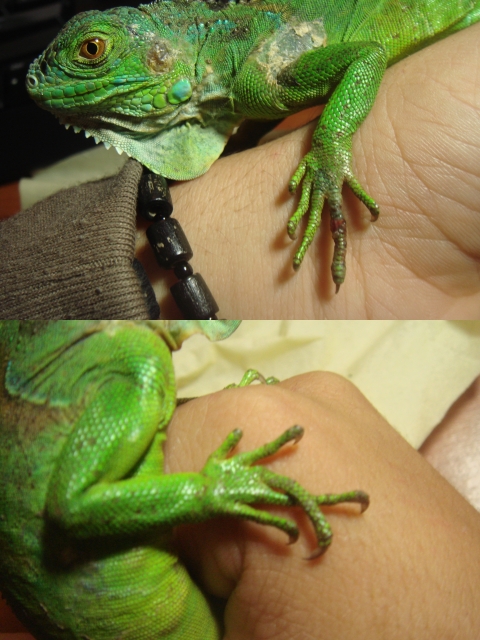 Iguana toe problem...
Question
toe problems
Hey there,
I adopted a baby iguan
Iguana toe problem...
Question
toe problems
Hey there,
I adopted a baby iguan
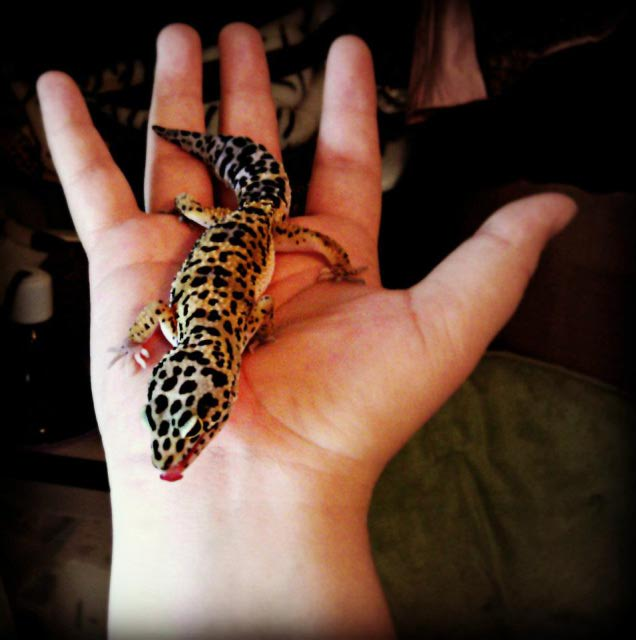 moving
QuestionQUESTION: I will be moving to another state in
moving
QuestionQUESTION: I will be moving to another state in
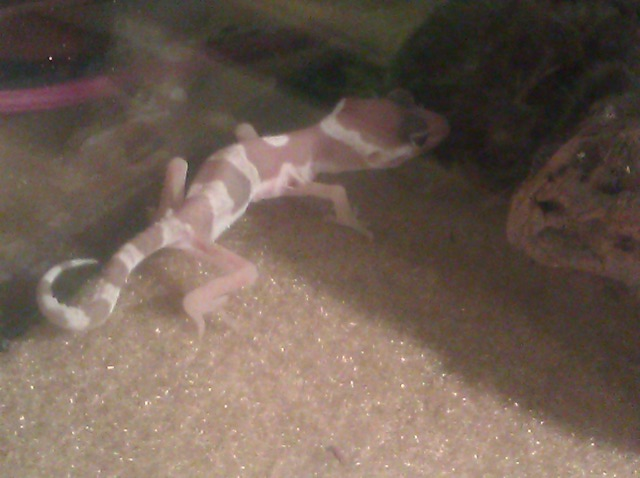 New Baby leo sick
Question
Leo Sick
I just recently bought a
New Baby leo sick
Question
Leo Sick
I just recently bought a
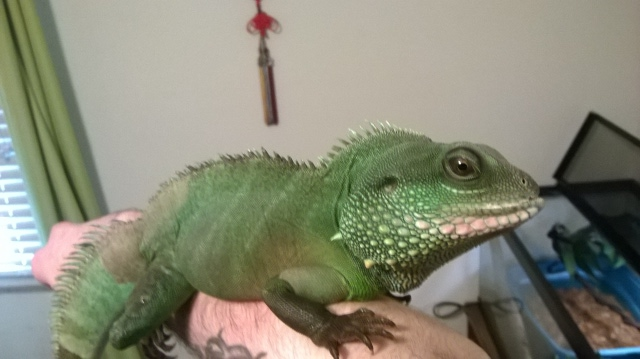 chinese water dragon
Question
Xerxes the water drago
I have an adult
chinese water dragon
Question
Xerxes the water drago
I have an adult
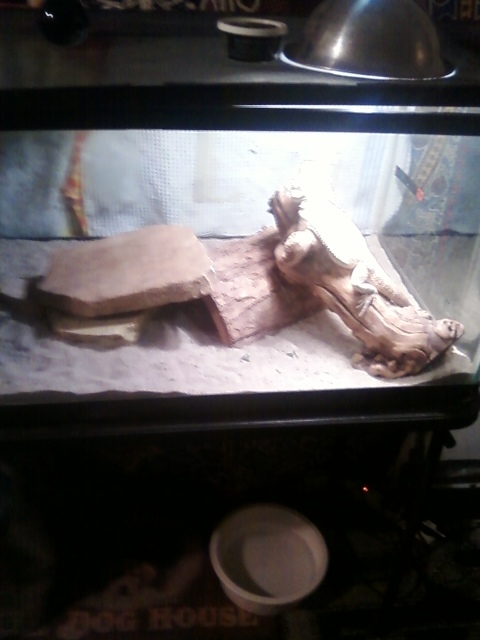 3 year oId beardie (male)
QuestionQUESTION: I just bought this guy (stu) a few mo
3 year oId beardie (male)
QuestionQUESTION: I just bought this guy (stu) a few mo